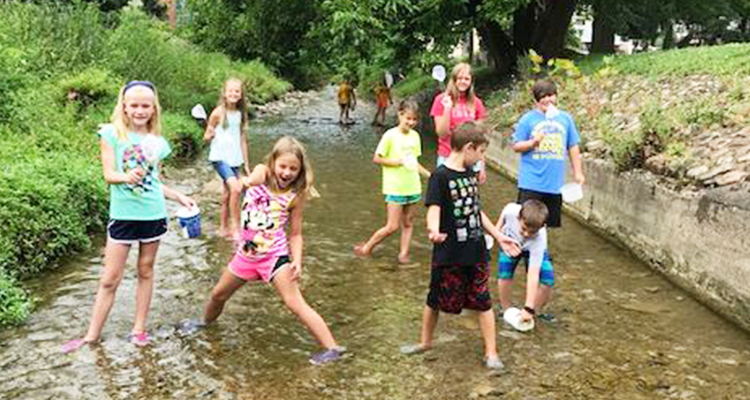“To empower students to think, to create, and to communicate in a nurturing environment where learning and character are paramount.” — Wheeling County Day School’s mission
1929 was an epic year in Wheeling, West Virginia, history. Two major institutions were founded by two Wheeling sisters, Eleanor Caldwell and Margaret Holloway: the Wheeling Symphony and Wheeling Country Day School, respectively. Ninety years later both remain fixtures of the Wheeling landscape and have proven to be solid community partners for nine decades.
 Of the two organizations, Wheeling Country Day School holds a special place in my heart. Not only is my son a second-grader there, but many of Wheeling’s well-known sons and daughters are graduates who continue to serve our community.
Of the two organizations, Wheeling Country Day School holds a special place in my heart. Not only is my son a second-grader there, but many of Wheeling’s well-known sons and daughters are graduates who continue to serve our community.
As other private and public schools shuttered their doors, Country Day has plowed on. Although there have been short periods of uncertainty and woe, heroes have managed to come along just in time to not only save the school but to help it prosper like never before.
IN THE BEGINNING
I try to imagine sometimes what life would have been like in Wheeling in the late 1920s when Margaret Holloway founded Wheeling Country Day School. Like other cities in the nation, Wheeling experienced incredible prosperity during the 1920s. Wheeling Steel was incorporated in 1920, WWVA began broadcasting in 1926, and the City of Wheeling assumed ownership of Oglebay Park in 1928. By the time of the 1930 census, Wheeling’s population had reached its highest point ever with nearly 62,000 people (compared to around 27,000 today).
It was during these developments that Holloway set out to found a school that would provide an excellent education for the children of Wheeling. Miss Bertha Wilson’s school, an all-girl college preparatory academy, announced that it was closing in 1929. Holloway, along with Margurite E. MacGregor, Clara W. Rogers, Charles F. Paul Jr. and Kent B. Hall incorporated Wheeling Country Day School on July 15 of the same year. Just a few months later, the stock market crashed, and the Great Depression began.
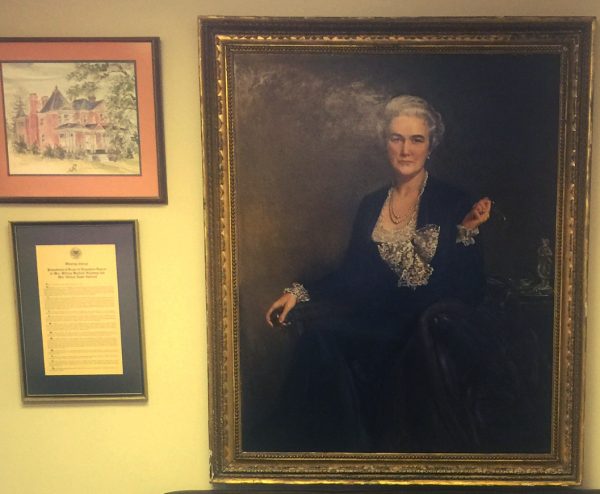
Starting a new school under the best conditions is challenging. Securing a location, hiring excellent educators and recruiting students take time, talent and money, but Holloway and her co-founders were set on providing excellent educational experiences for their students.
WCDS opened its doors at 1153 National Road in the fall of 1929 to seven young women with the intention of offering instruction from first through eighth grade. It would then move to 136 Edgington Lane and other locations throughout Woodsdale until it settled in its current location at 8 Park Road in 1942.
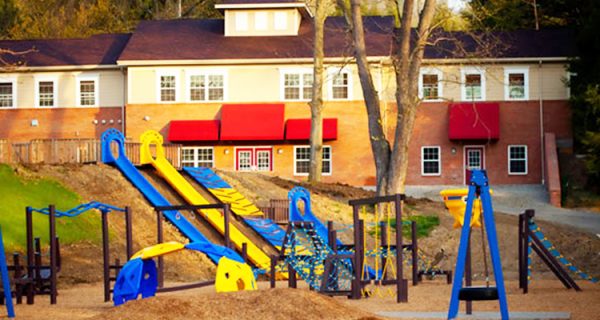
The genesis for WCDS had as much to do with Miss Bertha Wilson’s school closing as it did with the country day school movement that had been spreading across the nation since the second half of the 19th century. Parents wanted their children to have academically rigorous, character-building educations like those offered by boarding schools of the day, but they no longer wanted to send them away to school. Country day schools fulfilled these desires by establishing private educational opportunities in the rolling countrysides of what would later become middle and upper middle-class suburbs, which is why WCDS’ current location nestled into a six-acre wooded lot off of National Road seemed the ideal setting for children’s learning.
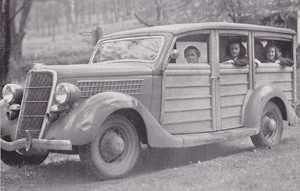
In a 1931 article from The Wheeling Register, Miss Francis Walling, WCDS’ first head of school, comments on the country day school movement as it related to WCDS: “There seems to be a real place for the private day school in our modern way of living. Education today goes beyond the more routine of the textbook. It is concerned with the whole development of the child into the adult … his mental, moral and physical health.”
FOR THE LOVE OF LEARNING
Over the past nine decades, Wheeling Country Day School has retained its core mission as it has adapted to changing times. That is, “to empower students to think, to create, and to communicate in a nurturing environment where learning and character are paramount.”
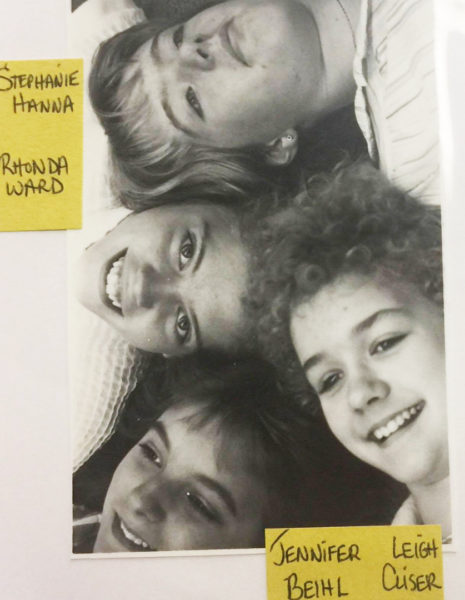
Scrapbooks held in the school library demonstrate the strength of WCDS traditions, such as competing at annual field day, traveling outside of the region, valuing international cultures and perspectives, and community service. The children smiling in the photos of those carefully assembled albums show excitement about their school and, more importantly, provide evidence that the overall mission of WCDS has endured through the years. That is, children who attend WCDS develop and maintain a lifelong love of learning.
Stephanie Hanna-Holt graduated from the last ninth grade class at WCDS in 1984. She speaks proudly of her days at the school: “It was a special place with teachers who taught creatively and genuinely cared. Because of the small class size we got to do amazing things like go to Canaan Valley, Canada to the Shakespeare Festival, Illinois to an archaeological dig, paint murals in the classroom, to name a few.”
All of these unique opportunities combined with traditional academics, such as reading, writing, math and science, to create a culture that, as Hanna-Holt says, “cultivated my love for learning and brought me out of my shell. The things that I’ve learned from my teachers at WCDS about character and integrity, responsibility, determination and perseverance have stayed with me to this day!”
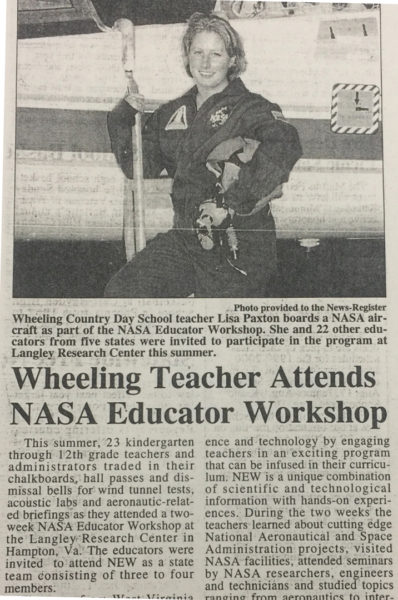
Students aren’t the only ones who continue to learn at WCDS, though.
Over the decades, teachers have gone on to further their educations in their fields of study and to learn new pedagogical methods as they became available. These practices continue today as teachers at WCDS attend and present nearly countless hours of professional development each year.
In fact, the constantly changing needs of students resulted in one of the region’s only centers for multi-sensory learning. The center is available to serve the following diagnoses and many more who go undiagnosed but experience learning difficulties: Dyslexia, Dyscalculia, Audio-processing Disorder, Dysgraphia, Visual-processing Disorder and Attention Deficit Disorder.
Teachers in The Center for Multi-Sensory Learning at WCDS are trained in the Orton-Gillingham method, which, according to the method’s website, “is focused upon the learning needs of the individual student. Orton-Gillingham (OG) practitioners design lessons and materials to work with students at the level they present by pacing instruction and the introduction of new materials to their individual strengths and weaknesses.”
THE WHEELING COUNTRY DAY FAMILY
Even though the school has grown to nearly 190 students over the years, the family atmosphere has remained constant. I have witnessed this community bonding many times in the past six years, but it struck me most on my son’s first day of first grade.
We were walking to his new classroom when all of the teachers were coming out of a faculty meeting. Each and every teacher at all grade levels addressed Tristan by name and several of them gave him a welcome-back hug. Being seen means there’s little chance that he will fall through the cracks and get lost along the way. My commitment to WCDS was further cemented that warm August morning.
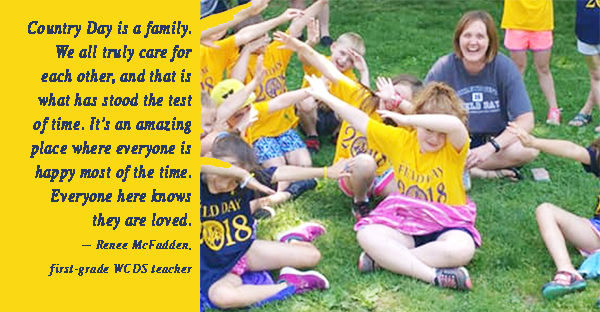
WCDS cultivates a family feeling in all that it does, especially if that means being unafraid to be your true self — warts and all. I remember learning at a Parent’s Night early on in my son’s education that WCDS wants to work with students where they are, which sometimes means “helping them overcome the fear of public speaking, stop cheating at board games and develop their own true talents.”
That home-like environment is obvious everywhere on campus from homemade lunches to the comfy chairs that sit in nearly every campus space. Parents are welcome to have coffee every morning in the gym, and the school encourages them to visit classes and volunteer throughout the day and for special events. For me, the feeling of home is symbolized by the rain boots that are often stacked up outside classroom buildings during the muddy season. Home is where we take off our shoes and relax because we know we are loved just the way we are.
IT’S POSSIBLE HERE
Back in the 1970s, a little girl named Liz Hofreuter decided that she wanted to be challenged. She asked her parents to send her to Wheeling Country Day School. Early in her career there, she complained in class about a sexist billboard for a local bank that was perched near the WCDS campus. Her teacher told her that complaining alone was not enough. Her teacher suggested that she write a letter to the bank president to express her views. She did. The bank offered her an opportunity to design her own billboard. She did. And she saw her work come to life on her way to school each morning.
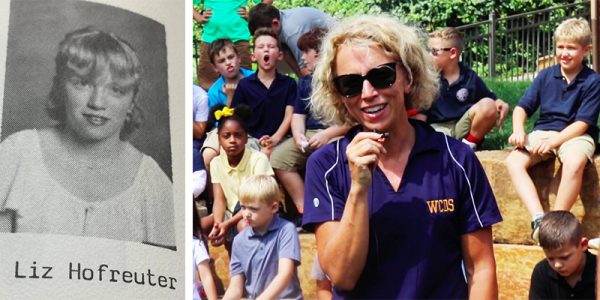
This young girl would become the head of Wheeling Country Day School in 2009. At that point, the school was struggling with low enrollment and fiscal issues, but with her determination, leadership skills and strong belief in doing something, she worked with the board, parents, teachers and staff and grew WCDS into the success that it has become.
In her decade of leading the school, it has grown in countless ways, including this school year when it once again welcomed sixth-graders on campus. That trend will continue into the near future when the school adds both seventh and eighth grades.
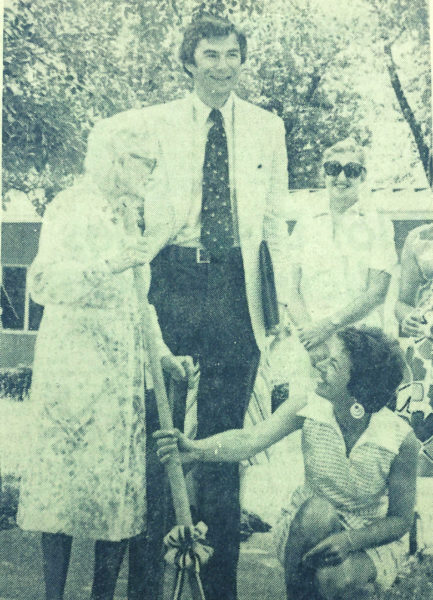
“Margaret Holloway had a vision, and it’s now my job to see it through in what it now looks like in the iteration of 2019,” Hofreuter told WTRF in a recent interview. “That includes returning to our roots and opening a middle school again. That’s exactly what she did in 1929.”
 On Saturday, March 23, WCDS will hold its only fundraiser of the year — Celebrate: WCDS! We Can Be Heros Gala. Stemming from early roots as an annual event called Book Bash, Celebrate invites everyone who loves the school to mark the school’s progress and help build the school’s future. It seems incredibly fitting that this year’s Celebrate theme is Superheroes. Teachers are some of our greatest heroes, and the woman who leads them is indeed a superhero.
On Saturday, March 23, WCDS will hold its only fundraiser of the year — Celebrate: WCDS! We Can Be Heros Gala. Stemming from early roots as an annual event called Book Bash, Celebrate invites everyone who loves the school to mark the school’s progress and help build the school’s future. It seems incredibly fitting that this year’s Celebrate theme is Superheroes. Teachers are some of our greatest heroes, and the woman who leads them is indeed a superhero.
Mrs. Holloway was present for the groundbreaking of new campus buildings in 1977 and passed away later that year. I like to think that if she were alive today, she would be inestimably proud of how her dream of a high-quality school has blossomed into the wonderful place it is today.
I know that I am grateful for her vision and the hard work and dedication of all who came after her. I fully believe that Wheeling Country Day School is preparing my son not only for future schooling, but for life. As he often says, “Country Day feels like my second home.”


